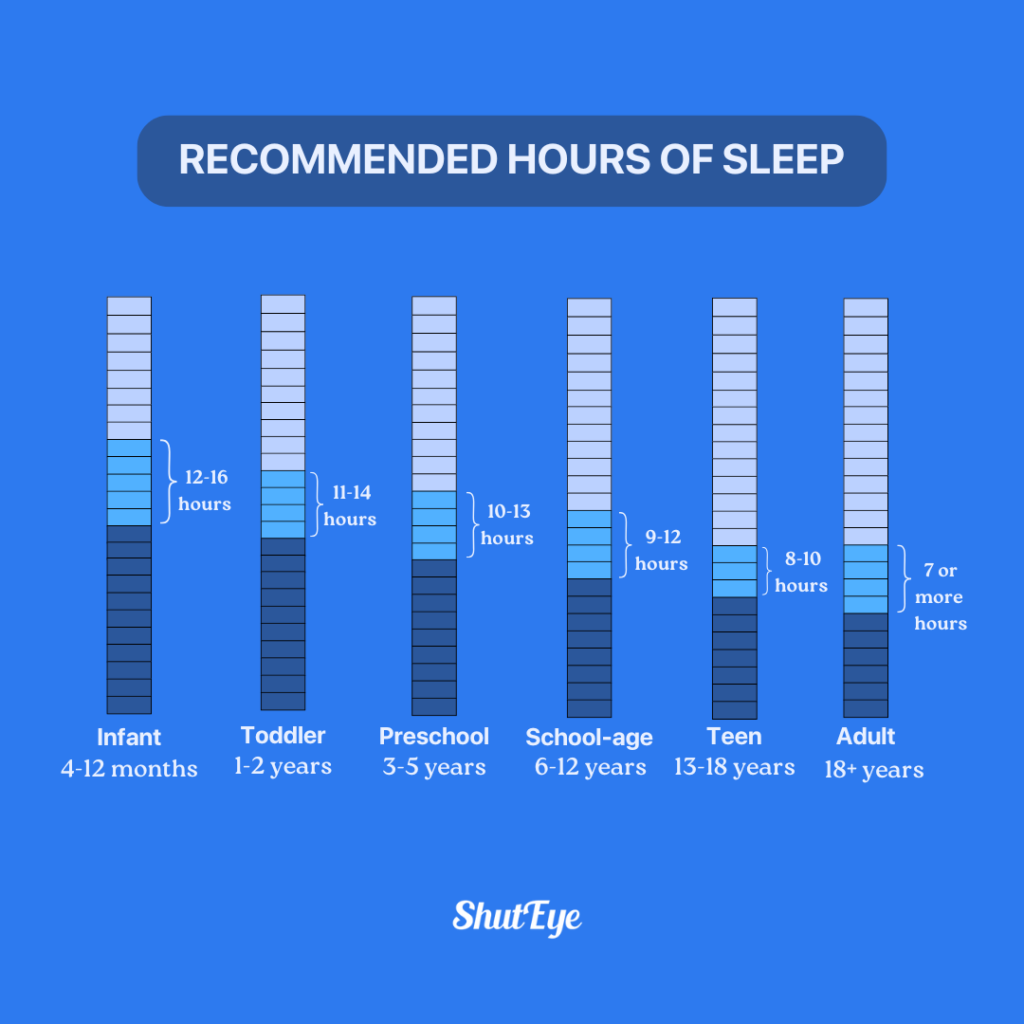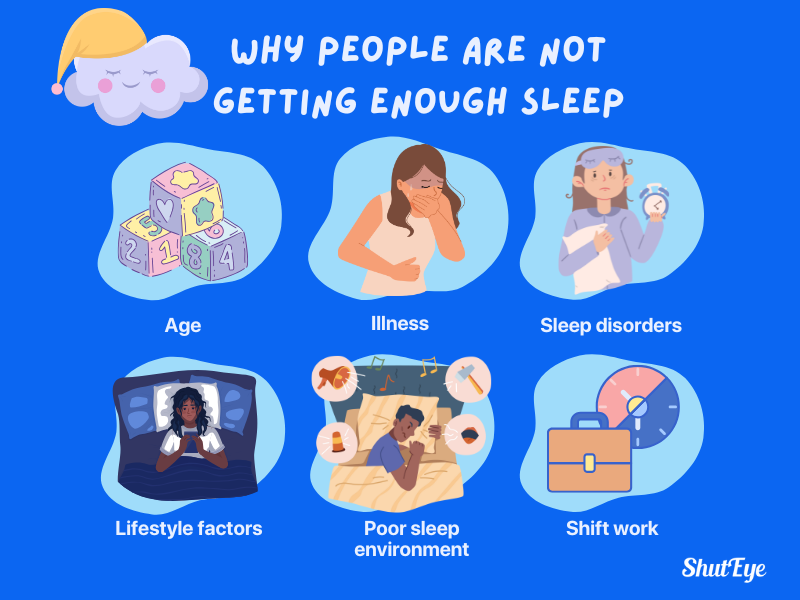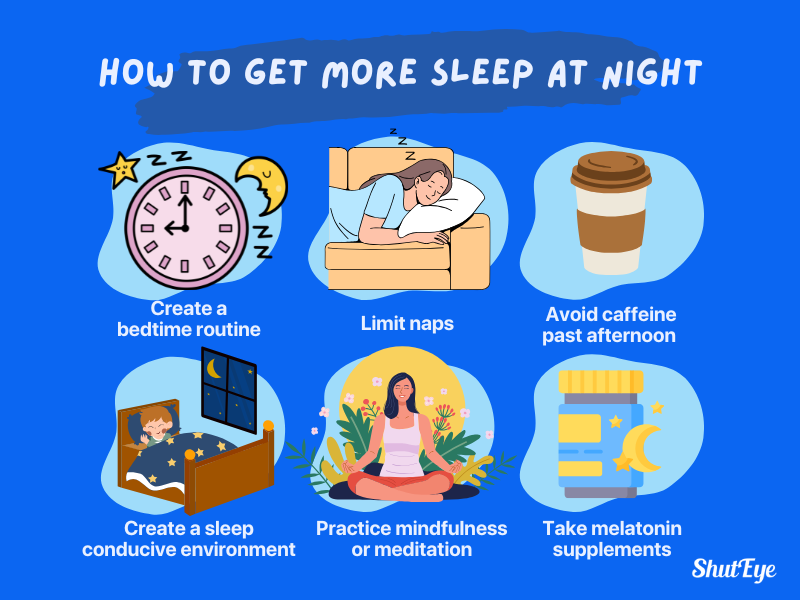


We constantly talk about the importance of sleep and its benefits. Yet, prioritizing sleep is not the case for some. For workaholics, getting no more than 4 hours of sleep is likely a norm. But is 4 hours of sleep enough to survive?
In this article, we’ll explore whether you can function optimally with such minimal rest and what is an adequate sleep duration.
According to sleep experts, adults should get at least seven or more hours of sleep each night to ensure adequate health and functioning. Inadequate sleep could put you at a higher risk of health issues compared to those who do get sufficient quality sleep [1].

Here are the general recommended hours of sleep based on age [2]:
4 hours of sleep per night is significantly less than what most adults require for optimal health and functioning. While individual sleep needs can vary, the general recommendation for adults is 7-9 hours per night.
While some individuals claim to function well on minimal sleep, such sleep patterns are usually not sustainable in the long term. Adequate sleep is crucial for physical repair, cognitive restoration, and emotional well-being, and consistently missing out on recommended sleep can seriously affect one’s overall health.
When you don’t get enough sleep each night, it can impact your physical and mental health negatively in many ways.
Let’s take a look at some of the effects that sleep deprivation can have on your health.

Those who sleep less than seven hours a night have a higher chance of getting obesity. Studies conducted found that those with short sleep duration were found to be 7.5 times more likely to have a higher body mass index. Individuals who had sufficient sleep were able to better maintain a healthy weight [3].
It is also worth noting that obesity is also a contributing factor to other health conditions such as obstructive sleep apnea (OSA).

Studies also found that sleep loss is linked to diabetes and impaired glucose tolerance. Individuals who reported less than 5 hours of sleep per night were 2.5 times more likely to have diabetes in comparison to those who slept for 7 to 8 hours.
Similarly, those who tended to oversleep and sleep more than 9 hours per night also showed signs of impaired glucose tolerance [3].

A lack of sleep also increases the risk for cardiovascular disease and high blood pressure by up to 45% more in comparison to those who are not sleep-deprived.

Adults with chronic sleep loss reportedly also face mental distress, depressive symptoms, and anxiety. Several studies have also shown that inadequate sleep causes higher levels of anxiety and depression, further emphasizing the negative effects of lack of sleep [4].

There are many reasons why people might not get enough sleep. Typically, it results from an illness, various lifestyle factors, or life circumstances.
The most common reasons why people may be sleep deprived include [5]:

Understanding the risk of insufficient sleep, it is crucial to prioritize sleep for better overall well-being. This can be done by making various lifestyle changes.
Here are 6 tips on how you can get more sleep at night:
If you are still unable to fall asleep despite trying all of the above tips, you may want to consider consulting your healthcare provider or sleep specialist for a proper assessment and treatment plan.
In conclusion, surviving on only 4 hours of sleep isn’t sustainable in the long run. It’s important to prioritize adequate sleep to ensure good overall mental and physical health.
Explore ways to improve your sleep quality with the ShutEye® app. ShutEye is a patented sleep-tracking app that can help you to improve your sleep patterns through personalized sleep recommendations.
Cedars Sini (2024) Sleep Deprivation [online]. Available at: https://www.cedars-sinai.org/health-library/diseases-and-conditions/s/sleep-deprivation.html
Institute of Medicine (US) Committee on Sleep Medicine and Research; Colten HR, Altevogt BM, editors. Sleep Disorders and Sleep Deprivation: An Unmet Public Health Problem. Washington (DC): National Academies Press (US); 2006. 3, Extent and Health Consequences of Chronic Sleep Loss and Sleep Disorders. Available at: https://www.ncbi.nlm.nih.gov/books/NBK19961/
National Heart, Lung and Blood Institute (2022) How Much Sleep Is Enough? [online]. Available at: https://www.nhlbi.nih.gov/health/sleep/how-much-sleep
Noble, A. (2023) Sleep Secrets Unveiled: How Much Sleep Do You Really Need [online]. Available at: https://www.mountelizabeth.com.sg/health-plus/article/how-much-sleep-i-need